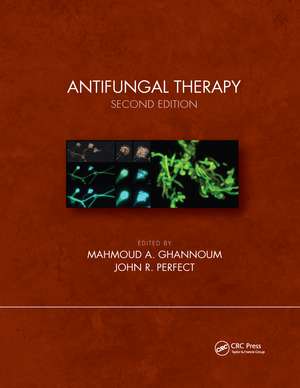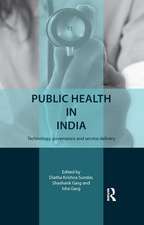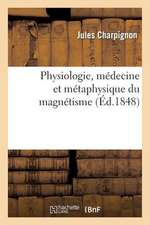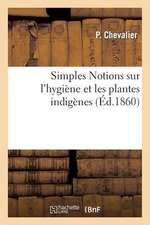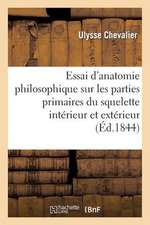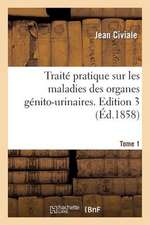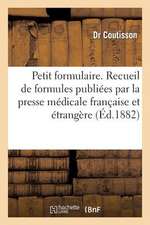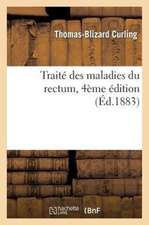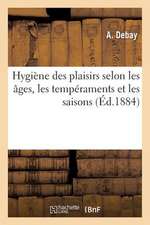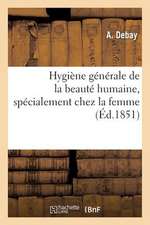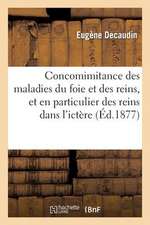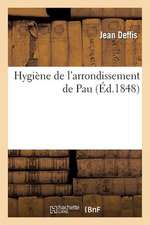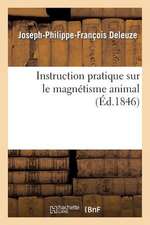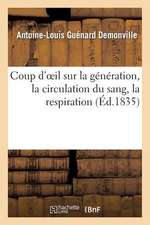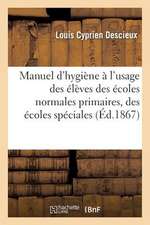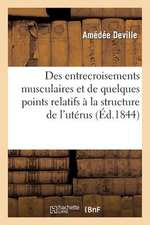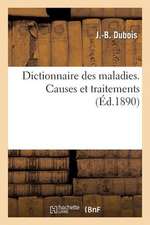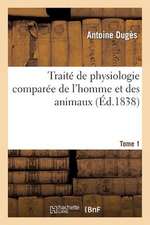Antifungal Therapy, Second Edition
Editat de Mahmoud A. Ghannoum, John R. Perfecten Limba Engleză Paperback – 30 sep 2020
Key Features
• Features useful information on administration, dosage and pharmacology of antifungal drugs that can be difficult to use in clinical practice
• Contains common Clinical Questions & Answers to highlight frequently encountered patient issues
• Covers clinical mycology essentials in addition to antifungal treatment to create a well-rounded reference
• Presents illustrations and clinical photos in full color to elucidate the concepts
• Provides detailed evidence of treatment recommendations
| Toate formatele și edițiile | Preț | Express |
|---|---|---|
| Paperback (1) | 641.62 lei 43-57 zile | |
| CRC Press – 30 sep 2020 | 641.62 lei 43-57 zile | |
| Hardback (1) | 1085.00 lei 43-57 zile | |
| CRC Press – 4 feb 2019 | 1085.00 lei 43-57 zile |
Preț: 641.62 lei
Preț vechi: 770.33 lei
-17% Nou
Puncte Express: 962
Preț estimativ în valută:
122.78€ • 128.51$ • 102.19£
122.78€ • 128.51$ • 102.19£
Carte tipărită la comandă
Livrare economică 31 martie-14 aprilie
Preluare comenzi: 021 569.72.76
Specificații
ISBN-13: 9780367655945
ISBN-10: 0367655942
Pagini: 536
Dimensiuni: 210 x 280 x 28 mm
Greutate: 1.09 kg
Ediția:2
Editura: CRC Press
Colecția CRC Press
Locul publicării:Boca Raton, United States
ISBN-10: 0367655942
Pagini: 536
Dimensiuni: 210 x 280 x 28 mm
Greutate: 1.09 kg
Ediția:2
Editura: CRC Press
Colecția CRC Press
Locul publicării:Boca Raton, United States
Public țintă
Professional ReferenceCuprins
Preface
Editors
Contributors
1. History of antifungals
Emily L. Larkin, Ali Abdul Lattif Ali, and Kim Swindell
2. Epidemiology of fungal infections: What, where, and when
Frederic Lamoth, Sylvia F. Costa, and Barbara D. Alexander
3. Experimental animal models of invasive fungal infections
Christopher L. Hager, Lisa Long, Yoshifumi Imamura, and Mahmoud A. Ghannoum
4. Antifungal drug resistance: Significance and mechanisms
Sharvari Dharmaiah, Rania A. Sherif, and Pranab K. Mukherjee
5. Antifungal prophylaxis: An ounce of prevention is worth a pound of cure
Aimee K. Zaas
6. Preemptive antifungal therapy: Do diagnostics help?
Vidya Jagadeesan, Margaret Powers-Fletcher, and Kimberly E. Hanson
7. The immune response to fungal challenge
Jeffery Hu and Jeffery J. Auletta
8. Immunomodulators: What is the evidence for use in mycoses?
J. Andrew Alspaugh
9. Fungal biofilms and catheter-associated infections
Jyotsna Chandra and Mahmoud A. Ghannoum
10. Polyenes for prevention and treatment of invasive fungal infections
Richard H. Drew
11. Flucytosine
Richard H. Drew
12. Pharmacology of azole antifungal agents
Elizabeth S. Dodds Ashley
13. Echinocandins for prevention and treatment of invasive fungal infections
Melissa D. Johnson, John Mohr, and Ahmad Mourad
14. Novel methods of antifungal administration
Richard H. Drew
15. Dermatophytosis
Mahmoud A. Ghannoum, Iman Salem, and Nancy Isham
16. Invasive candidiasis
Richard R. Watkins and Tracy Lemonovich
17. Invasive aspergillosis
Frank Esper
18. Management of cryptococcosis
John R. Perfect and Ahmad Mourad
19. Management of endemic mycoses
John R. Perfect and Ahmad Mourad
20. Human hyalohyphomycoses: A review of human infections due to Acremonium spp., Paecilomyces spp., Penicillium spp., Talaromyces spp., and Scopulariopsis spp.
Nour Hasan
21. Management of phaeohyphomycosis
John R. Perfect and Ahmad Mourad
22. Pneumocystis
Kim Swindell
23. Management of mucormycoses
John R. Perfect and Ahmad Mourad
24. Antifungal management in risk groups: Solid organ transplant recipients
Jasmine Chung, Sylvia F. Costa, and Barbara D. Alexander
25. Prophylaxis and treatment of invasive fungal infections in neutropenic cancer and hematopoietic cell transplant patients
Daniel R. Richardson, Marcie L. Riches, and Hillard M. Lazarus
26. Antifungal use in transplant recipients: Selection, administration, and monitoring
Richard H. Drew, Mary L. Townsend, Melanie W. Pound, and Steven W. Johnson
27. Infants: Yeasts are beasts in early life
Rachel G. Greenberg and Daniel K. Benjamin Jr.
28. Newer antifungal agents in pediatrics
William J. Steinbach
29. Fungal infections in burn patients
Nour Hasan
30. Allergic bronchopulmonary aspergillosis
Editors
Contributors
1. History of antifungals
Emily L. Larkin, Ali Abdul Lattif Ali, and Kim Swindell
2. Epidemiology of fungal infections: What, where, and when
Frederic Lamoth, Sylvia F. Costa, and Barbara D. Alexander
3. Experimental animal models of invasive fungal infections
Christopher L. Hager, Lisa Long, Yoshifumi Imamura, and Mahmoud A. Ghannoum
4. Antifungal drug resistance: Significance and mechanisms
Sharvari Dharmaiah, Rania A. Sherif, and Pranab K. Mukherjee
5. Antifungal prophylaxis: An ounce of prevention is worth a pound of cure
Aimee K. Zaas
6. Preemptive antifungal therapy: Do diagnostics help?
Vidya Jagadeesan, Margaret Powers-Fletcher, and Kimberly E. Hanson
7. The immune response to fungal challenge
Jeffery Hu and Jeffery J. Auletta
8. Immunomodulators: What is the evidence for use in mycoses?
J. Andrew Alspaugh
9. Fungal biofilms and catheter-associated infections
Jyotsna Chandra and Mahmoud A. Ghannoum
10. Polyenes for prevention and treatment of invasive fungal infections
Richard H. Drew
11. Flucytosine
Richard H. Drew
12. Pharmacology of azole antifungal agents
Elizabeth S. Dodds Ashley
13. Echinocandins for prevention and treatment of invasive fungal infections
Melissa D. Johnson, John Mohr, and Ahmad Mourad
14. Novel methods of antifungal administration
Richard H. Drew
15. Dermatophytosis
Mahmoud A. Ghannoum, Iman Salem, and Nancy Isham
16. Invasive candidiasis
Richard R. Watkins and Tracy Lemonovich
17. Invasive aspergillosis
Frank Esper
18. Management of cryptococcosis
John R. Perfect and Ahmad Mourad
19. Management of endemic mycoses
John R. Perfect and Ahmad Mourad
20. Human hyalohyphomycoses: A review of human infections due to Acremonium spp., Paecilomyces spp., Penicillium spp., Talaromyces spp., and Scopulariopsis spp.
Nour Hasan
21. Management of phaeohyphomycosis
John R. Perfect and Ahmad Mourad
22. Pneumocystis
Kim Swindell
23. Management of mucormycoses
John R. Perfect and Ahmad Mourad
24. Antifungal management in risk groups: Solid organ transplant recipients
Jasmine Chung, Sylvia F. Costa, and Barbara D. Alexander
25. Prophylaxis and treatment of invasive fungal infections in neutropenic cancer and hematopoietic cell transplant patients
Daniel R. Richardson, Marcie L. Riches, and Hillard M. Lazarus
26. Antifungal use in transplant recipients: Selection, administration, and monitoring
Richard H. Drew, Mary L. Townsend, Melanie W. Pound, and Steven W. Johnson
27. Infants: Yeasts are beasts in early life
Rachel G. Greenberg and Daniel K. Benjamin Jr.
28. Newer antifungal agents in pediatrics
William J. Steinbach
29. Fungal infections in burn patients
Nour Hasan
30. Allergic bronchopulmonary aspergillosis
Notă biografică
Mahmoud A. Ghannoum, PhD, MBA, FIDSA, FAAM joined Case Western Reserve University and University Hospitals Case Medical Center in 1996 from prior positions at the UCLA School of Medicine and Kuwait University. Dr. Ghannoum has spent his entire academic career studying medically important fungi encompassing different fungal pathogens including Candida, Aspergillus, and Cryptococcus, the major causes of fungal infections. He has published more than 350 peer-reviewed articles addressing various aspects of superficial and systemic fungal infections. More recently, he published the first study describing the oral mycobiome of healthy individuals. He has published extensively in the area of fungal pathogenesis with special focus on virulence factors including phospholipase B, germination, adhesion, and biofilm formation, both in vitro and in vivo. Dr. Ghannoum is a professor and director of the Center for Medical Mycology at Case Western Reserve University and University Hospitals Case Medical Center. This center of excellence, which he directs, is a multidisciplinary center that combines basic and translational research investigating fungi from the test tube to the bedside. He has performed several studies investigating the mechanisms underlying Candida pathogenesis. He is the recipient of the Freedom to Discover Award from Bristol- Myers Squibb and the Rhoda Benham Award from the Medical Mycological Society of the Americas. He served as a chairman of the Subcommittee on Antifungal Susceptibility Testing, Clinical Laboratory Standards Institute, and was selected as a "Most Interesting Person" by Cleveland Magazine in 2013. Dr. Ghannoum is an entrepreneur-scientist who has launched a number of companies focusing on the treatment of biofilm infections and microbial dysbiosis as it relates to gut health. He coined the term ‘Mycobiome’.
John R. Perfect, MD, is James B. Duke Professor of Medicine at Duke University Medical Center, a faculty member of the Duke University Interdisciplinary Program in Genetics, and director of the Duke University Mycology Research Unit. He is chief of the Division of Infectious Diseases in the Department of Medicine at Duke Medical Center. Dr. Perfect is a diplomat of the American Board of Internal Medicine and American Board of Infectious Diseases. After receiving an undergraduate degree in biology from Wittenberg University, Dr. Perfect went on to receive a medical degree from the Medical College of Ohio at Toledo. He then completed an internship at the Riverside Methodist Hospital in Columbus, Ohio; a residency in internal medicine at the University of Michigan Medical Center in Ann Arbor; and a fellowship in infectious diseases at Duke University Medical Center. He is a fellow of the American Society for Microbiology and the Infectious Diseases Society of America. Dr. Perfect is also a fellow of the American Association for Advancement of Science and member of International Society for Human and Animal Mycology, and Immunocompromised Host Society (ISHAM). He is president of the Mycoses Study Group and Educational Research Consortium and president-elect of ISHAM. Dr. Perfect has served on numerous committees and advisory boards. He received the Rhoda Benham Award from Medical Mycology Society of the Americas and the Lucille Georg Award from ISHAM. Dr. Perfect’s research interests focus on the understanding of fungal pathogenesis through the study of Cryptococcus neoformans as well as clinical studies on the epidemiology, diagnosis, and management of invasive mycoses.
Recenzii
"This book succeeds overall as an important reference and a comprehensive review of the current state of antifungal therapy in humans. The up-to-date information makes it a useful resource for clinicians consulting for immunosuppressed patients with invasive mycoses. The scientific data presented and the clinical experience and insight of the expert authors on the use of newer antifungal drugs in the pediatric population in the last section will be
particularly useful in guiding practicing pediatricians in the care of their patients. Perhaps the last chapter is one of the most valuable of all, putting in perspective the mycobiome, which, as a part of the microbiome, plays a key role in health and disease."
Robert Gene Penn, MD (Nebraska Methodist Hospital)
particularly useful in guiding practicing pediatricians in the care of their patients. Perhaps the last chapter is one of the most valuable of all, putting in perspective the mycobiome, which, as a part of the microbiome, plays a key role in health and disease."
Robert Gene Penn, MD (Nebraska Methodist Hospital)
Descriere
This new edition of Antifungal Therapy aims at providing concise, practical, need-to-know information for busy physicians dealing with fungal infections, such as infectious disease physicians, transplant surgeons, dermatologists, and intensivists.
